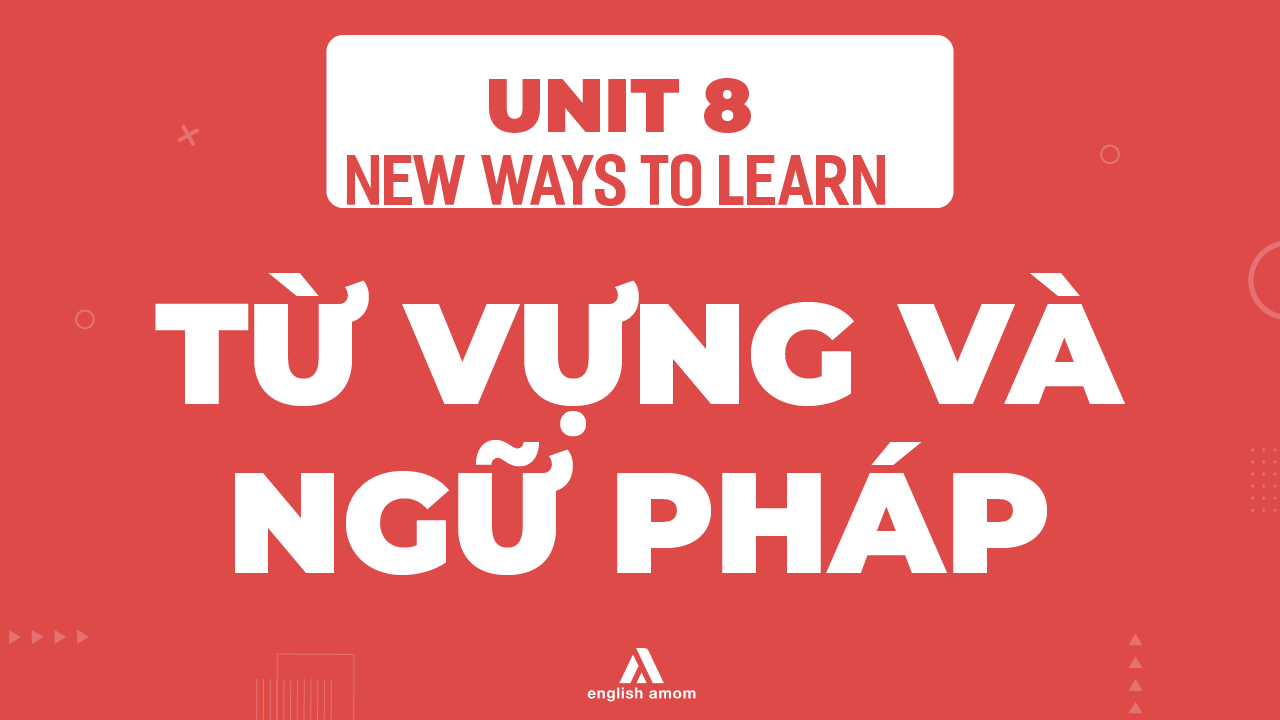
► Kênh hỏi đáp và giải thích thắc mắc kiến thức MIỄN PHÍ → truy cập LINK NHÓM: ENGLISH AMOM
► Kênh YOUTUBE hệ thống toàn bộ bài giảng CLIPS: truy cập LINK: ENGLISH AMOM CHANNEL
► Kênh TIKTOK: ENGLISH AMOM
2) Complete the sentences with the words found in the word-search in 1. Make changes to the word forms when necessary.
1.I'm looking for some new to put on my smartphone to improve my English pronunciation.
2.Please don't ask him questions about his family. He hates answering questions.
3.That laptop, which has the latest , is very expensive.
4.The phrase ‛ natives' refers to people who are familiar with computers and the Internet from an early age.
5.People are now familiar with the term m-learning or learning, which focuses on the use of personal electronic devices.
6.My son, who is a promising pianist, is now interested in composing music.
ĐÁP ÁN
| 1. applications | 2. personal | 3. technology |
| 4. digital | 5. mobile | 6. electronic |
3) Circle the correct option.
1.Mobile devices allow students
A.to take part in class activities without physically being there.
B.to work with books and blackboards
2.When my classmates upload their assignments they
A.send their assignments to the teachers, using the Internet.
B.get their assignments from the teachers, using the Internet.
3.In the age of technology, students can easily communicate with each other
A.electronics.
B.electronically.
4.With smartphones, students can download information and
A.put it onto a laptop or desktop for later use.
B.put it onto a laptop or desktop for texting.
5.When I turn off the voice and texting applications in my smartphone, it
A.changes its colour.
B.becomes a mobile computer.
6.Teachers from different countries can use smartphones to
A.share lesson plans.
B.share grades.
ĐÁP ÁN
| 1. a | 2. a | 3. b |
| 4. a | 5. b | 6. a |
5) Finish the incomplete sentences, using which, that, who or whose.
1.Quang answered the phone. He told me you were out.
Quang
2.A computer technician served us. He was very nice.
A computer technician,
3.The article is about smartphones. They have become excellent study tools.
The article is
4.This tablet is mine. Its screen has been scratched.
This tablet
5.Do you know the name of the man? His laptop was broken.
Do you
6.An e-book is an electronic book. It can be read on a mobile device.
An e-book
ĐÁP ÁN
1. Quang, who told me you were out, answered the phone.
2. A computer technician, who/that was very nice, served us.
3. The article is about smartphones, which have become excellent study tools.
4. This tablet, whose screen has been scratched, is mine.
5. Do you know the name of the man whose laptop was broken?
6. An e-book is an electronic book which/that can be read on a mobile device.
An e-book which/that can be read on a mobile device is an electronic book.
6) Underline the mistake in each sentence and correct it.
| Mistake |
Mistake |
Correct |
|---|---|---|
| 1. Do you remember the name of the hotel what is at the end of this street? | ||
| 2. The man he came to fix the Internet access for me was skillful. | ||
| 3. The girl whose he fell in love with left him after two months. | ||
| 4. John, who have used his smartphone to take pictures of the trip, will upload them on the Internet. | ||
| 5. What is the name of the boy his father is the president of the School Parents Association? | ||
| 6. The teachers whom think that mobile devices are distracting ban them in their classrooms. |
ĐÁP ÁN
1. what → which/that
2. he → who/that
3. whose → who/that
4. have → has
5. his → whose
6. whom → who/that

